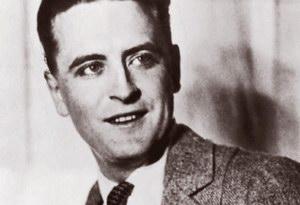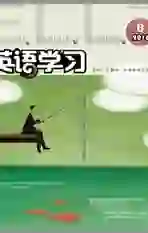F. Scott Fitzgerald1 on the Secret of Great Writing 菲茨杰拉德的来信:写作的秘密
2016-05-14ByMariaPopova温纯/译注
By Maria Popova 温纯/译注


What is the secret of great writing? For David Foster Wallace2, it was about fun. For Henry Miller3, about discovery. Susan Sontag4 saw it as self-exploration. Many literary greats anchored5 it to their daily routines. And yet, the answer remains elusive6 and ever-changing.
In the fall of 1938, Radcliffe College sophomore Frances Turnbull sent her latest short story to family friend F. Scott Fitzgerald.7 His response, found in F. Scott Fitzgerald: a Life in Letters—the same volume that gave us Fitzgeralds heartwarming fatherly advice and his brilliantly acerbic response to hate mail—shows his insistence upon the importance of emotional investment in writing and offers some uncompromisingly honest advice on essence of great writing:8
November 9, 1938
Dear Frances:
Ive read the story carefully and, Frances, Im afraid the price for doing professional work is a good deal higher than you are prepared to pay at present. Youve got to sell your heart, your strongest reactions, not the little minor things that only touch you lightly, the little experiences that you might tell at dinner. This is especially true when you begin to write, when you have not yet developed the tricks of interesting people on paper, when you have none of the technique which it takes time to learn. When, in short, you have only your emotions to sell.
This is the experience of all writers. It was necessary for Dickens to put into Oliver Twist the childs passionate resentment at being abused and starved that had haunted his whole childhood.9 Ernest Hemingways first stories In Our Time went right down to the bottom of all that he had ever felt and known.10 In This Side of Paradise I wrote about a love affair that was still bleeding as fresh as the skin wound on a haemophile11.
The amateur, seeing how the professional having learned all that hell ever learn about writing can take a trivial thing such as the most superficial reactions of three uncharacterized girls and make it witty and charming—the amateur thinks he or she can do the same.12 But the amateur can only realize his ability to transfer his emotions to another person by some such desperate and radical expedient13 as tearing your first tragic love story out of your heart and putting it on pages for people to see.
That, anyhow, is the price of admission. Whether you are prepared to pay it or, whether it coincides or conflicts with your attitude on what is “nice” is something for you to decide. But literature, even light literature, will accept nothing less from the neophyte14. It is one of those professions that wants the “works.” You wouldnt be interested in a soldier who was only a little brave.
In the light of this, it doesnt seem worthwhile to analyze why this story isnt saleable but I am too fond of you to kid you along about it, as one tends to do at my age. If you ever decide to tell your stories, no one would be more interested than me.
Your old friend,
F. Scott Fitzgerald
P.S. I might say that the writing is smooth and agreeable and some of the pages very apt15 and charming. You have talent—which is the equivalent of a soldier having the right physical qualifications for entering West Point.
***
Two years prior, in another letter to his 15-year-old daughter Scottie upon her enrollment in high school, Fitzgerald offered more wisdom on the promise and perils16 of writing:
Grove Park Inn
Asheville, N.C.
October 20, 1936
Dearest Scottina:
[…]
Dont be a bit discouraged about your story not being tops. At the same time, I am not going to encourage you about it, because, after all, if you want to get into the big time, you have to have your own fences to jump and learn from experience. Nobody ever became a writer just by wanting to be one. If you have anything to say, anything you feel nobody has ever said before, you have got to feel it so desperately that you will find some way to say it that nobody has ever found before, so that the thing you have to say and the way of saying it blend as one matter—as indissolubly as if they were conceived together.17
Let me preach18 again for one moment: I mean that what you have felt and thought will by itself invent a new style so that when people talk about style they are always a little astonished at the newness of it, because they think that is only style that they are talking about, when what they are talking about is the attempt to express a new idea with such force that it will have the originality of the thought. It is an awfully lonesome business, and as you know, I never wanted you to go into it, but if you are going into it at all I want you to go into it knowing the sort of things that took me years to learn.
[…]
Nothing any good isnt hard, and you know you have never been brought up soft, or are you quitting on me suddenly? Darling, you know I love you, and I expect you to live up absolutely to what I laid out19 for you in the beginning.
Scott
写出好作品的秘诀是什么?对于大卫·福斯特·华莱士来说,是好玩儿;对于亨利·米勒来说,是发现;而苏珊·桑塔格则认为是自我探索。很多文学大家归结于规律的写作习惯。然而,答案依然扑朔迷离,充满变数。
1938年秋,拉德克利夫学院的二年级学生弗朗西斯·特恩布尔把她新写的短篇故事寄给世交好友弗朗西斯·斯科特·菲茨杰拉德。菲茨杰拉德的回信收录在《弗朗西斯·斯科特·菲茨杰拉德书信集》中,其中既有他慈父般的暖心忠告,也有他对恶意来信尖锐而精彩的反击。回信中他坚持了感情投入对写作的重要性,也毫无保留地提供了一些关于如何写出伟大作品的极其诚恳的建议。
1938年11月9日
亲爱的弗朗西斯:
我已仔细读了你的小说,弗朗西斯,从事职业写作所要付出的代价,恐怕比你目前所想象的要大得多。你必须把整颗心都掏出来,反映出你最强烈的情感,而非一些让你触动不深的肤浅小事,一些只能作为茶余饭后谈资的微不足道的经历。特别是你目前刚开始写作,还没掌握塑造有趣角色的诀窍,还没学会那些需要时间修炼的技巧,简而言之,这个时候你只有情感可以叫卖。
这是所有作家的共同经历。狄更斯必须在《雾都孤儿》中展现奥利弗·特维斯特这个孩子对整个童年期惨遭虐待和忍饥挨饿的强烈的愤恨。海明威早期的小说集《我们的时代》直触他内心深处所感受和体会到的东西。而我在《人间天堂》里描写的那个 爱情故事,犹如血友病患者皮肤上的伤口一样仍在淙淙冒血。
而当业余写作者看到已掌握写作知识技巧的专业作家能够把三个普通姑娘最表层的反应这类的细微小事写得风趣迷人,就认为自己也能够做到那样。但业余写作者们要看到啊,他们是把自己的情感通过彻底而激烈的方式映射到角色身上,比如把自己悲剧般的初恋从心底里掏出来,写在纸上供人阅读。
不管怎样,这就是进入写作行业的代价。无论你是否准备好付出这种代价,或是它与你对“好作品”的看法是不谋而合或相互背离,这是你需要决定的事情。但文学,即便是通俗文学,也不会对新手有所宽待。这是一份需要你拿出实实在在作品的职业。没有人会对一个勇气尚不足的士兵感兴趣。
鉴于此,我们似乎没有必要去分析为什么这篇故事会卖不出去,但我又太喜欢你了,舍不得哄骗你——这是我这个年龄的人经常会做的事情。如果你决定要讲出你的故事,没有人会比我更感兴趣了。
你的老朋友,
弗朗西斯·斯科特·菲茨杰拉德
注:我还是要说一下,你的文笔流畅恰当,有几页描写相当灵活生动。你是有天赋的,就像一个士兵要有良好的身体素质才能进入西点军校。
***
两年之前,在一封写给他刚被高中录取的15岁的女儿斯考蒂的信中,菲茨杰拉德又提出了一些对写作的前景和风险的睿智看法。
北卡罗来纳州艾西维尔市格罗夫园酒馆
1936年10月20日
我最爱的斯考蒂:
……
不要因为你写的故事不出彩而灰心丧气,但我也不会为了鼓励你而说它好,毕竟,如果你想有所成就,就必须自己摸着石头过河,从实践中学习。没有人仅仅因为拥有想要成为一名作家的念头就能够成为一名作家。如果你有东西要说,而这些东西之前没有人说过,你的感觉如此强烈,一定要找到一种前人从未用过的方式来表达它,也就是你的内容和表达的方式已经融为一体,不可割裂就像生就如此。
让我再唠叨一会儿吧:我的意思是你的所思所感要体现出一种新风格,当别人说到风格时,大多会稍稍吃惊于你这种风格的新颖性,因为他们以为谈论的只是风格,但实则是你用这种创新的写作风格去凸显观点的原创性。这是一个相当孤独的职业,你也知道,我一直都不想你进入这个行业,但假如你已打定主意,那么我得让你了解这些年来我所获得的经验。
……
好东西从非轻易可得。你也知道你从来都不是娇生惯养,还是你就要这么突然地不理我了?亲爱的,你要知道我爱你,我希望你能够达到我一直以来对你的期望。
斯科特
1. F. Scott Fitzgerald: 弗朗西斯·斯科特·菲茨杰拉德(1896—1940),20世纪美国最杰出的作家之一,“迷惘的一代”(the Lost Generation)的代表作家,代表作为《了不起的盖茨比》。
2. David Foster Wallace: 大卫·福斯特·华莱士,美国小说家(1962—2008),文学上极富造诣,代表作有《系统的笤帚》、《无尽的玩笑》等。
3. Henry Miller: 亨利·米勒(1891—1980),美国作家,被公推为美国文坛的怪杰,代表作为《北回归线》。
4. Susan Sontag: 苏珊·桑塔格(1933—2004),美国文学家、艺术评论家,以敏锐的洞察力和广博的知识著称,代表作有《反对阐释》、《论摄影》等。
5. anchor: 使固定,使稳定。
6. elusive: 难以捉摸的,不易记住的。
7. Radcliffe College: 拉德克利夫学院,创建于1879年,曾是位于美国马萨诸塞州剑桥的一个女子文理学院,1999年全面整合到哈佛大学。
8. acerbic: 尖刻的;uncom-promisingly: 坚决地,不肯妥协地。
9. Dickens: 查尔斯·狄更斯(Charles Dickens, 1812—1870), 19世纪英国批判现实主义小说家;resentment: 憎恨,愤恨;haunt: 时常萦绕心头。
10. Ernest Hemingway: 欧内斯特·海明威(1899—1961),美国作家和记者,20世纪最著名的小说家之一,美国“迷惘的一代”的代表作家,代表作有《老人与海》、《永别了,武器》等。
11. haemophile: 血友病。
12. trivial: 琐碎的;superficial: 肤浅的,表面的;uncharacterized: 普通的,一般的。
13. expedient: 应急办法,权宜之计。
14. neophyte: 初学者,新手。
15. apt: 灵巧的,聪明的。
16. peril: 危险,冒险。
17. indissolubly: 不能溶解地,不可分解地;conceive: 构思,想象。
18. preach: 宣扬,说教。
19. lay out: 设定,安排。
